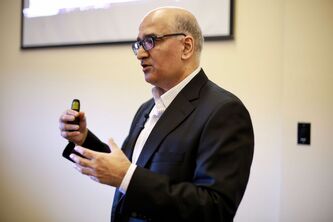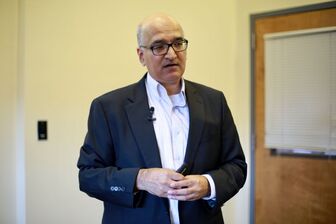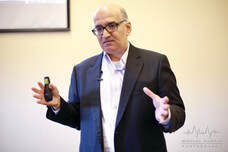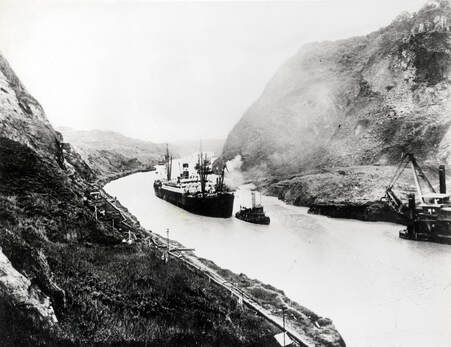President Teddy Roosevelt's leadership during a major health crisis that Made America Great3/20/2020 Presidential leadership is critical to success during a major national or international crisis. We are in major international health and economic crisis with the Covid-19 Pandemic. President Teddy Roosevelt is an excellent example of how he handled the health crisis during the construction of the Panama Canal. People probably have long forgotten how close America came to failing like France in building the Panama Canal. Because of Teddy Roosevelt's leadership of Roosevelt and a critical decision, he made that turned things around and made America Great. We are at a point where if this crisis is not handled well, America may no longer remain a global power. I don't want to be an alarmist, but just look at how things have changed in a very short time. In less than a month, the policies of two Democratic presidential candidates (Yang and Sanders) are being pushed by the Republicans. All power, according to history, comes to an end sooner or later. Will 2020 be the beginning of the end of America's greatness? Executive Decision The key decision Roosevelt made was to provide full support to Dr. William Crawford Gorgas. Gorgas' job was to rid of malaria from the Isthmus of Panama to reduce deaths, so the construction of the canal can take place. People were scared to go to Panama and work on this project. The decision was not simple since Roosevelt believed that malaria was caused by garbage and filth, and not mosquitoes. When the cost of ridding tropical diseases went up significantly, the leadership team within the Isthmian Canal Commission wanted to replace Gorgas so they can allocate more resources toward engineering. Roosevelt had to make a critical decision. So how did he make this decision? 1) He listened to Chief Engineer John Stevens, who sent a letter telling Roosevelt that the success of building the canal goes through Gorgas' work of reducing deaths from tropical diseases. 2) He listened to his friend Dr. William Henry Welch of Johns Hopkins, who told Roosevelt that he had the right guy on the project. And he also told Roosevelt Gorgas is correct about the mosquito theory for the cause of malaria. 3) He listened to his hunting buddy Dr. Alexander Lambert. Lambert told Roosevelt that give Gorgas his full-throated support if he wants a legacy of building the Panama Canal. Roosevelt realized that Gorgas was critical to building the Panama Canal and told the Commission to get off his back and let him do his job. That is the high stakes President Trump and America face today. Pandemics can make or break global powers. We need someone like Dr. Anthony Fauci, Director of NIAID, to help us get through this health crisis. President Trump should learn from President Teddy Roosevelt to guide him through this crisis and Keep America Great. #####  Jay Oza is an author, speaker, executive coach. He makes people thrive on high stakes stage whether it's for a job interview, a sales presentation or a high-stakes speech. He is the author of the book Winning Speech Moments: How to Achieve Your Objective with Anyone, Anytime, Anywhere. Please download the speech checklist that you can use to help you with your next high stakes speech. Please contact him if you would like to have a two 75 minute coaching session on job interviewing or high-stakes speaking or interested in inviting him to give a talk on job Interviewing or high-stakes speaking at your event. You can reach him at [email protected].
0 Comments
After you have taken care of yourself and your loved one's health and basic needs, you must focus on your development during this crisis. You need to put together a plan to learn since you are going to be locked down for the next few weeks or months. No one knows how long this crisis will last. No one knows whether the virus will burn itself, disappear and come back again in fall, or burn itself out for good. Let's hope the latter is what happens. Since we are all doing our part in defeating this enemy, but you can't ignore your development during this challenging period. Learning has never been easier than it is today. We have so much stuff online like YouTube, Coursera, Edx, Khan Academy, etc. that you can turn to. And most of it is free. Here is what I am doing that I want to share with you:
Read If you are home and not going out and about or have to take care of your kids, you should have some time to read. I plan to take advantage of getting a lot of books to read during this crisis. Write Reading is good, but you can plus it by writing your thoughts from what you read. You can either keep your writing private or public by publishing it. Writing will help you crystallize your thoughts. Speak Writing is good, but you can plus it by preparing a speech, preferably a short one. Speaking will help you have an interesting conversation with people. Publish Writing is good, but you can plus it by publishing your thoughts as a blog post on your website or LinkedIn or post a video on YouTube. Once you have enough of content in a specific area, you can take this to the next level and publish a book, create an online course or a workshop. Producing content every day adds up quickly. You can also learn technical skills by taking courses online from Coursera, Edx, Udacity and others. My go to place for learning is thegreatcoursesplus.com. This is a yearly subscription under $200 but well worth it based on the wide variety of courses they offer. It is easy to get overwhelmed, distracted and lose focus with all the news regarding the Covid-19 crisis. As I said, if you have taken care of yourself, your loved one's health and basic necessities, then you must focus on your personal development. You are unlikely to get a better time to invest in yourself. Take advantage of it now so you can thrive on the other side of this crisis whether you are employed or unemployed. #####  Jay Oza is an author, speaker, executive coach. He makes people thrive on high stakes stage whether it's for a job interview, a sales presentation or a high-stakes speech. He is the author of the book Winning Speech Moments: How to Achieve Your Objective with Anyone, Anytime, Anywhere. Please download the speech checklist that you can use to help you with your next high stakes speech. Please contact him if you would like to have a two 75 minute coaching session on job interviewing or high-stakes speaking or interested in inviting him to give a talk on job Interviewing or high-stakes speaking at your event. You can reach him at [email protected]. Most people can't make new friends after leaving college. A lot of that has to do with disliking interacting with strangers. We often avoid others unless it becomes a necessity. And the reason for this, according to Daniel Levitin (neuroscientist, cognitive psychologist, and bestselling author ), who said on the "Art of Manliness podcast "that interacting with others is not only hard but quite complex. It is more complex than brain surgery, being a rocket scientist and even solving Sudoku and crossword puzzles." Hence, it's hard to make friends at any age, especially as you get older. In order to make friends, first you have to interact with others and then see if that can lead to a friendship. Even though making friends is uncomfortable and hard, we do have to do it to get things done, make progress and feel good.. But how? In this post, I will use the friendship formed early in the classic novel "Moby Dick" by Herman Melville between the narrator Ishmael and the harpooner Queequeg. What Melville depicts about friendship is backed up by science. No wonder the novel is a classic. So in this blog post, I will integrate all the steps that they had to go through to form a friendship. Interacting with strangers is hard Friendships are hard to form. Most of us dread making friends. And you see this as a big problem as you get older. At the beginning of "Moby Dick," Ishmael is depressed and has decided that he needs to go to the seas to overcome his depression. When he arrives in New Bedford, MA, he has very little money and needs a place to stay. Since it looks cheap, he decides to stay at Spouter-Inn. But the landlord informs him that he has no vacancy. The best the landlord can offer Ishmael is to share a large bed with a harpooner. Ishmael is not so sure about sharing a bed with a harpooner since he doesn't know who he is. But when he learns a little about the harpooner from the landlord, Ishmael is now sure that sharing a bed with the harpooner is definitely a bad idea, mainly because he thinks the harpooner is strange, dangerous and a cannibal. Ishmael says, "No man prefers to sleep two in a bed...And when it comes to sleeping with an unknown stranger, in a strange inn, in a strange town, and that stranger a harpooneer, then your objections indefinitely multiply." He decides to sleep on the bench. But he is uncomfortable and cold, so he reluctantly decides to take a chance at rooming with the harpooner. What we see with Ishmael is something we can all relate to. We don't go out of our way to make friends especially if it's uncomfortable. We are scared of the unknown. But at the same time, we could be denying an opportunity to forge a potential friendship. There is always a risk in meeting strangers, but there is also a potential for a reward too. Approach with an open mind Melville was ahead of his time. Though he didn't write that we should judge someone by the "content of their character," as MLK did in his famous "I Have A Dream" speech. But that is what we see in how Ismael accepts Queequeg. Ishmael says, "What's all this fuss I have been making about, thought I to myself—the man's a human being just as I am: he has just as much reason to fear me, as I have to be afraid of him." And when he says, "Better sleep with a sober cannibal than a drunken Christian," he means that we tend to assume that someone similar to us is likely to be a person of good character. But that is not always the case, and one shouldn't do that as he displays with Queequeg. What we see here is to be open-minded in dealing with people and don't make any judgments about others until you see how they act and behave towards you and others. You really have to know someone before you can make any definitive judgment about someone. Often we are to fast to make a judgment and influenced by others. Make an effort to know the other person All relationships develop incrementally. What Ishmael sees in Queequeg's action and behavior makes him like him as he says. "he [Queequeg] treated me with so much civility and consideration." The next morning, they spend time together eating breakfast together. It was not one and done. They are both making an effort to get to know each other better. What we see is that all friendships are built incrementally, and it requires a willingness by both parties. There are many escape ramps available that are easy to take if you don't want to build a friendship. Show you understand the other person To develop a relationship, you have to make an effort to know the other person. In the novel, Ismael has learned a lot about Queequeg, such as where he is from, how he ended up so far from home, how he became a harpooner, etc. Ishmael shows he is really interested in knowing about Queequeg. And Queequeg gains Ishmael's trust and reveals more about himself. And that is how friendship develops. To build a friendship, you have to make an effort to know another person, so you know where he is coming from, what drives him and motivates him. Everyone has a story, and you must extract it if you want to strengthen a relationship. But this can only happen when there is a trust established. Give and Take All friendships are built on give and take for it to last. Ishmael saw Queequeg attending a church. Ismael joins Queequeg in offering prayers to his idol. Ismael reasons this act on his part as following: "But what is worship?—to do the will of God—THAT is worship. And what is the will of God?—to do to my fellow man what I would have my fellow man to do to me—THAT is the will of God." Ishmael gives Queequeg his time and understanding. Queequeg gives Ismael money to show his generosity without expecting anything in return. Ismael was surprised but did not want to offend Queequeg and accepted his money. They both later in the novel share a pipe, as Ishmael says, "Soon I proposed a social smoke; and, producing his pouch and tomahawk, he quietly offered me a puff. And then we sat exchanging puffs from that wild pipe of his and keeping it regularly passing between us." A key to any friendship is that there must be a give and take. If the relationship is one way, then it will not last long. You have to be attuned to this if you want to build a strong, long-lasting friendship. Forge a long-lasting friendship You can't listen to anyone and believe 100% what they tell you about someone. You have to find out for yourself. Ishmael was convinced that Queequeg was weird and not someone he would like. But after getting to know him, he realized he was wrong. Though they are different in so many ways, they forged a friendship because they both are people of high character. And no one was more surprised to see this than the landlord. When the landlord sees Ishmael and Queequeg strike a friendship, Ishmael says, "The grinning landlord, as well as the boarders, seemed amazingly tickled at the sudden friendship which had sprung up between me and Queequeg—especially as Peter Coffin's cock and bull stories about him had previously so much alarmed me concerning the very person whom I now companied with." Friendships are hard, and you have to take the risk and work hard. And if the other person is willing to do the same, then you have a making of a strong, long-lasting relationship. I believe you can tell a lot about a person in life, work, or casually on how he makes and nurtures friendships. It does require a lot of creativity since it is so easy to stay in our comfort zone and deal with people we know. Relationship building is a critical skill for success, and we can all learn a lot from how Melville describes the relationship that Ismael and Queequeg forged in "Moby Dick." Backed up by science According to Lydia Denworth, author of "Friendship," she says on the podcast "Curious Minds: Innovation in Life and Work," that friendship comes down to three things:
Lydia Denworth cited a study in the podcast "Health, Psychology and Human Nature," that it takes about fifty hours together to go from acquaintance to friendship and about two hundred hours to become a best friend. So as you can see, friendship is time-consuming, and thus it is hard to make a lot of friends. In "Moby Dick," Ishmael and Queequeg forged their friendship fast since they spent a lot of time together before they even got on the Pequod. Then they probably became best friends by spending a lot of time together on the Pequod. And Denworth also pointed out something interesting in the podcast that you can use the way you make friends as a template for any relationship. I tried to show how friendship was developed in the classic "Moby Dick." According to science, friendships are very important for longevity, health, and happiness. So it was not only important for Ishmael and Queequeg but for all of us. #####  Jay Oza is an author, speaker, executive coach. He makes people thrive on high stakes stage whether it's for a job interview, a sales presentation or a high-stakes speech. He is the author of the book Winning Speech Moments: How to Achieve Your Objective with Anyone, Anytime, Anywhere. Please download the speech checklist that you can use to help you with your next high stakes speech. Please contact him if you would like to have a two 75 minute coaching session on job interviewing or high-stakes speaking or interested in inviting him to give a talk on job Interviewing or high-stakes speaking at your event. You can reach him at [email protected]. |
AuthorJay Oza Archives
July 2024
Categories
All
|
© 2017 Winning Speech Moments




 RSS Feed
RSS Feed